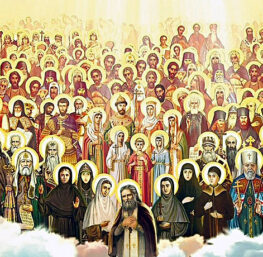
by Trevor Thomas –
At this time of year, Christians celebrate Easter, or as I prefer, Resurrection Sunday. As one scans history, no other date put such a mark in time as when Jesus Christ shed His grave-clothes and departed the tomb.
Of all the religions of the world, only Christianity claims an empty tomb for its founder. The physical resurrection of Jesus is the cornerstone of Christianity. British theologian Michael Green said it well when he noted, “Without faith in the resurrection there would be no Christianity at all.” Noted biblical scholar, professor, and author Wilbur M. Smith said that “[t]he resurrection of Christ is the very citadel of the Christian faith. This is the doctrine that turned the world upside down[.]” Indeed it did.
C.S. Lewis notes that “[i]n the earliest days of Christianity an ‘apostle’ was first and foremost a man who claimed to be an eyewitness of the Resurrection,” or more accurately, a witness of the resurrected Christ. He adds that “to preach Christianity meant primarily to preach the Resurrection.” And preach they did.
The transformation of the disciples of Jesus is one of the greatest evidences of His resurrection. For decades following Jesus’ death and resurrection, they preached His “good news.” Biblical references and strong extra-biblical sources have almost all of the disciples dying martyrs’ deaths. James, the son of Zebedee, according to Scripture, was, “put to death by the sword [probably beheaded].” According to early church historians, Peter was crucified in Rome, and Paul (of course not one of the original twelve, but an apostle nonetheless) was beheaded there. Strong church tradition has Thomas, the “doubting” disciple, being run through with a spear.
The manner of martyrdom of the other disciples is less clear, but strong evidence suggests that all, save John, died horrific deaths because of their faith. Their unwavering efforts spread the gospel to many regions of the world, including Rome, Greece, Armenia, Persia, Syria, India, Egypt, Libya, Arabia, and North Africa.
The faith of Jesus’ Apostles spread to thousands upon thousands in a relatively short period of time. Many of the early believers suffered intense persecution as well. Fulton Oursler, in The Greatest Faith Ever Known, notes that “[t]housands of these men and women would die themselves in the arena, burning on pitch-soaked pyres, crucified, they would die for Jesus Christ, and for the Faith, the Church that Christ founded.”
The persecution of the church continued for centuries. After Constantine’s conversion in the year 312, the church passed from persecution to privilege. Councils were called, the Scriptures were translated into various languages, and missionaries carried the gospel to ever farther reaches of the world.
The influence that Christianity has had on the world can be measured in practically every facet of life. Everything from the family to science, government, medicine, art, literature, business, and so on has felt the impact of the message of the Resurrection of Christ.
The world’s first university, birthed in 1088, was the University of Bologna in Italy. It was founded to teach canon law. The second-oldest university, the University of Paris, grew out of the cathedral schools of Notre-Dame and soon became a great center for Christian orthodox studies. Dr. Alvin J. Schmidt, in his book Under the Influence: How Christianity Transformed Civilization, points out that every college established in colonial America, except the University of Pennsylvania, was founded by some denomination of Christianity. He adds that, preceding the Civil War, 92 percent of the 182 colleges and universities in the U.S. were established by some branch of the church.
Many of the greatest artists in history — Rembrandt, Michelangelo, Donatello, Da Vinci, and Salvador Dalí — were Christians. This is evident in that many of the great works they produced were scenes or characters from Scripture. Beethoven, considered by many to be the world’s greatest composer, composed some of the most profound Christian masterpieces of history. Johann Sebastian Bach was, as one scholar put it, indeed “a Christian who lived with the Bible.”
Take note of the number of influential charities inspired by Christianity. Among them are The Salvation Army, Campus Crusade, Catholic Charities, Habitat for Humanity, and the YMCA. Also, about 25% of U.S. hospitals are Christian.
The great nation that we inhabit was founded almost exclusively by Christians and upon Christian principles. The United States has become perhaps the most influential nation in world history. Standing for freedom and justice and operating out of love, this nation, whether through its government or private citizens, has come to the aid and rescue of billions of people around the world.
The current year is 2012. This is 2,012 years not from Caesar, Buddha, or Mohammed, but from the birth of Jesus Christ. Dan Flynn notes that “[t]he attempt to replace Anno Domini (AD) and BC (Before Christ) with BCE (Before Common Era) and CE (Common Era) is yet another exercise in futility. Doesn’t this Common Era, after all, begin with the life of Christ?”
The impact of Christ’s resurrection can be seen in institutions and nations — virtually every facet of life, as I said earlier — but I think it is most noticeable in the lives of individuals. We may measure our years from His birth, but our hope is in His resurrection.
HT: American Thinker



